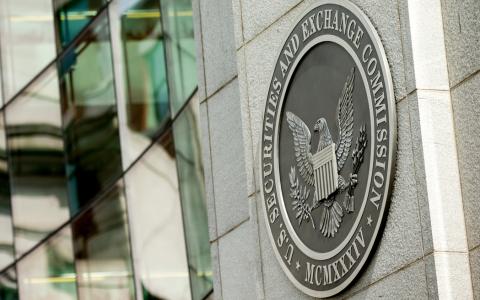
President Trump initially delayed the implementation of the DOL fiduciary rule requiring brokers or those offering advice on retirement-savings accounts to put clients' interests first, and it has again been delayed until July 2019. It finally went into partial effect June 9, but nothing is truly set in stone yet. While the DOL considers revising or repealing the rule before it takes full effect, the SEC is working on its own standards of conduct for investment advisors and brokers. Ideally, the delay will give the two agencies additional time to collaborate ahead of the rule’s implementation.
Uncommon ground
Realistically, the SEC's actions could preempt the DOL fiduciary rule that has led to many revamped processes, products and compensation structures in the financial services industry.
The two federal bureaucracies could also adopt standards that would lead to further confusion and delays.
To avoid more trouble for industry professionals and their clients, it's about time for the SEC and DOL to get on the same page.
Labor Secretary Alexander Acosta indicated in a Wall Street Journal op-ed piece that he hopes the SEC will be a "full participant" in the review of their rule.
Acosta called for them to "engage constructively as we each pursue our ongoing analyses of the standards of conduct applicable to investment advisers and broker-dealers when they provide investment advice to retail investors."
Also recognizing the potential problem, SEC Chairman Jay Clayton recently expressed concern about differing rules depending on whether clients are working with an adviser on retirement or other investments.
He expressed hope that the SEC and DOL reach common ground. "There's enough overlap in our mandates where we can get to a place of clarity. I think that we all want the same thing: We want what's best for the Main Street investor to save for their retirement."
That represents a change from the statements made by the previous SEC Chairwoman, Mary Jo White, last year to Congress. White felt the fiduciary rules between the agencies needed to be coordinated, but would not be the same.
She argued that the rule the SEC is working on would not mimic that of the DOL’s fiduciary rule which is changing the definition of fiduciary under ERISA.
Where they overlap
The 2010 Dodd-Frank financial reform law gave the SEC authority to propose a uniform fiduciary-duty rule, but they did not agree upon specific language. The DOL did.
The DOL rule expands the "investment advice fiduciary" definition under ERISA. The new rule applies the requirement to anyone making a recommendation or solicitation. Interpreted broadly, that directly affects retail investors and entities traditionally regulated by the SEC. Now, since the June 9 implementation, different standards of conduct exist for accounts subject to the DOL rule and those applicable to investment advisers when providing investment advice.
Benefits of being on the same side
A clear benefit for people working in the industry and their clients is clarity about the types of professionals or firms that can provide investment advice, and the standards of those relationships.
A lack of coordination could result in customer confusion and potential financial ramifications.
The SEC is looking at how the type of relationship with retail investors influences net returns. Some relationships might lead to lower net returns or more risk in their portfolios.
Clayton also indicated that the SEC is looking for comments on uniform laws, how investment advice should be defined, who should be considered as "retail investors," and other areas of possible confusion for the public and professionals in the industry.
Whether one agrees with the need for a fiduciary rule or not, having the DOL and SEC aligned is in the interest of advisers and those seeking advice. Continuing to dwell in uncertainty benefits no one.



